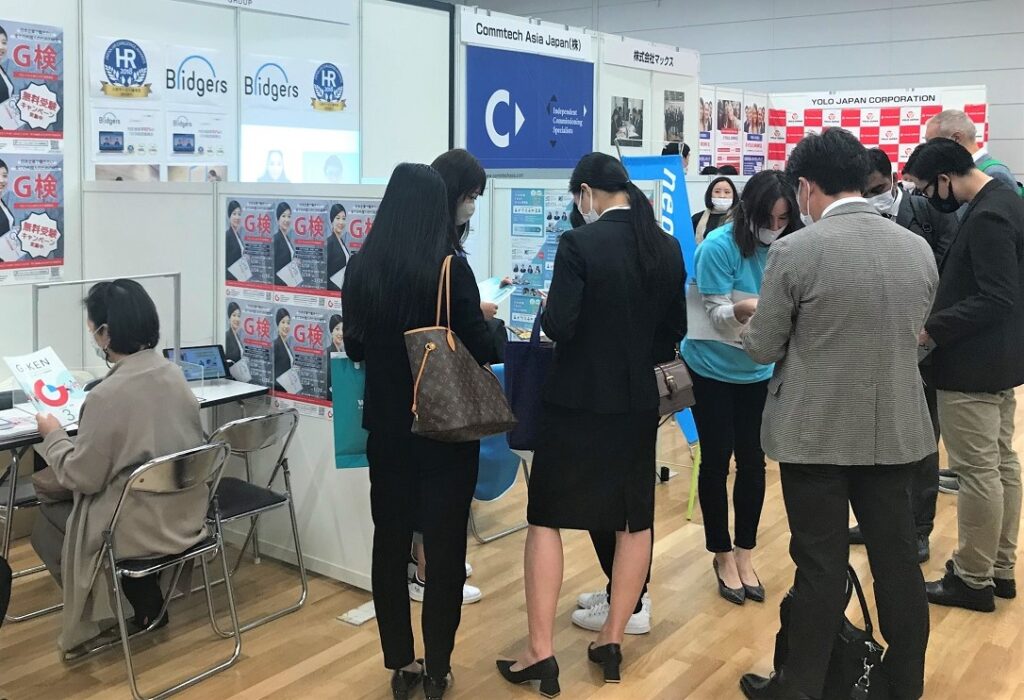Job Hunting Schedule for International Students
Job Hunting Schedule
The following is a general schedule of job hunting.
March to May: Corporate recruiting sessions
There are recruiting (briefing) sessions held by each company and joint job fairs held by several companies. When attending these sessions and fairs, students submit their resumes and applications to companies they want to enter. The company will screen the applications based on these documents and select the candidates to actually meet and interview.
June to September: Interviews, unofficial job offers
If you pass the document screening, you will be invited by the company for an interview. The number of interviews differs from company to company, but in most cases, there will be two or three. In general, an early unofficial job offer is made by September, followed by a job offer ceremony (usually in October).
*If you do not get an offer by this time, do not give up; some of our seniors have received offers after January and joined the company in April.
December to March: Onboarding procedures
Change your status of residence (visa), etc.
Preparation in Advance is Important

If there are companies that interest you, we recommend that you actively apply and prepare well. Let’s take a look at how to prepare for job hunting.
Improve your Japanese language skills
Make an effort to improve your Japanese language skills on a daily basis. A high score on the JLPT (Japanese Language Proficiency Test) or the BJT ( Business Japanese Proficiency Test) is advantageous for finding a job. Also, your ability to speak in Japanese will be examined during interviews.
Research on industries and companies
While analyzing your own interests and strengths, research industries and companies through websites (job sites and each company’s website) and interview your seniors. As you do this, you will gradually begin to understand what kind of industry or company you want to work in.
Participate in internships
For university students, internships start in the summer of your junior year. If you go to your university’s career center or other job-hunting support office, they will introduce you to internships. By actually doing the work, you can find out if the job is right for you, what your strengths and challenges are, and much more.
Finding and applying for jobs
 Example of a job fair
Example of a job fairOnce you have decided what kind of company you want to work for, look for job postings. Here are some major job board sites.
- Mynavi
- Rikunabi
Also, various organizations hold job fairs. At these fairs, many companies set up booths and you can talk directly with people from those companies.
After searching for companies and finding the one you want to go to, you can attend its recruiting session and submit your resume and application.
Creating your resume and application
Websites such as Mynavi offer support and tools for creating resumes. Our site also provides information on how to write a resume.
The Basics of Writing a Resume
If you are an international student looking for a job in Japan, you will not be invited to an interview unless you pass the document screening process, including your resume. So, how should you write your resume? Let’s take a look at some important points.
Let’s Learn How to Write a Resume (with Examples)
When you are looking for a job in Japan, your resume or application (entry sheet) will have sections for personal summary, reasons for applying, and strengths and weaknesses. If you can present your strengths in these fields, you will have a better chance of getting invited to an interview. Here are some examples of how to write a resume.
Working in Japan – Pay, Overtime Pay and Paid Leave
This article tells you how salaries are calculated for foreigners working in Japan.. It also explains the overtime pay and paid leave systems.
If you want to know more, check here!
Designing Your Career|JICA-Net Library
Job Hunting Guide for International Students | JASSO
Employment Service for foreigners | Ministry of Health, Labour and Welfare
